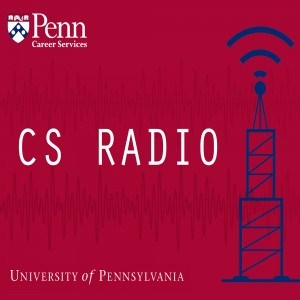Each year, PennDesign students regularly connect with Career Services as a resource in their job search efforts. And each year, the Career Services graduate student and postdoc advising team asks recent graduates of PennDesign to share what worked best for them in finding post-graduation employment. We conduct “Career Plans Surveys” of recent PennDesign graduates, where they report data about their current employers, positions, and plans as well as share their advice for current students. Below are just a sample of the responses we received very recently – each with some direct and doable suggestions for making the most of your time and the resources here at Penn. Even if you just skim through the quotes from these 2014 grads, you will get a sense of recurring themes: network, go to career fairs (especially the PennDesign Career Connection Day fair, in late March every year), know your faculty and ask them for assistance, explore online job boards and resources in your career field, and visit Career Services. Read on:
Advice from your PennDesign Peers
Send out work samples to as many firms as possible, talk to people at career fairs and follow up with emails. (MLARC 2014)
I contacted former professors, colleagues from internships, and Penn alums. I also looked for job postings through the ASLA and Land8. The job I ultimately got was through a contact with a Penn alum who I have known since before graduate school. (MLARC 2014)
I accepted a temporary position for a project that really excites me and hope to use it as a launching point for a long-term position in the same area. My typical job search strategy involves talking to as many people as possible, using idealist.org and other list serves, and inviting people out for informational lunches. I have found that the best way to get an interview is through personal connections or relationships rather than applying to a listed position. I have also been hired after cold emailing – the firm was actually looking for something even though they hadn’t posted an official position yet. (MCP, 2014)
I probably spent the most effort looking at the multiple jobs boards that are likely to offer listings for Planning students. These include Planetizen, planning.org, and uli.selectleaders.com, all of which have a frequently-used jobs section. In addition, I was happy to attend the Design School career fairs – but I made sure to be selective, and make the firms make their pitch to me as much as I was pitching myself to them. You must carve out time and motivation to send out applications. Treat it as a job, one that you schedule on your calendar. Also, try to apply to some “safety” positions first – ones that might be good but not your most tantalizing ones. This helps you work out some kinks and get overall practice honing your resume, letter-writing, and even interview skills. Talk to other students! They can always give you new ideas on where to look and who to talk to. (MCP 2014)
Use Career Services as much as possible, particularly in refining your resume and cover letter and performing mock interviews. They are exceedingly helpful processes. QuakerNet is also a spectacular resource for finding alumni in relevant fields and relevant locations. (MCP 2014)
I built my online portfolio and used it as my application material to apply for product designer jobs. I had a list of potential employers and I found all job vacancies from their official website. I also got some part-time offers from dribbble.com because I posted my professional works and self-started works there. (MArch, 2014)
I had a spreadsheet with offices I’ve been interested in since my 500 year. I used this sheet to organize my internship applications, and I kept coming back to this spreadsheet to keep myself focused on a specific type and location of office. As I attended events and met friends of friends, I would naturally expand my network, often into some of the firms that I had listed. By the time I was ready to graduate, I feel I had a strong enough network that allowed me to cut through a lot of the process and really speed up the path from making a phone call to interviewing to receiving an offer. (MArch 2014)
Be selective about the number of firms you’re applying for and send out specific work samples and cover letters tailored to the firm. Also, don’t be intimidated or afraid of online postings. I wanted to work for a small firm and ended up connecting with a previous undergraduate alum with a PennDesign employee and a wife who graduated from PennDesign from an ad posting on Archinect. Also, don’t be afraid to use professors as a resource. From my experience, they are always willing to help. (MArch, 2014)
My advice is to stay active by interning, volunteering or freelancing until you find the right fit. Use all of your resources and apply even if you don’t think you’ll meet all of the qualifications but know it’s a job you are willing to do extra work for to make up for some skills you may be lacking. (MUSA 2014)
Networking is the key in finding a job. (MUSA 2014)
One of the pieces of advice that I found useful was to go to all possible career fairs and talk to the potential employers, it built my confidence and I also got some of the best advice from them. My advice is to have a good relationship with the faculty since a lot of opportunities come through them– having some amount of part time experience also helps during the interview. (MUSA 2014)
See the latest data from the 2014 PennDesign Career Plans survey and be sure to follow up with Career Services – we are here to help!


